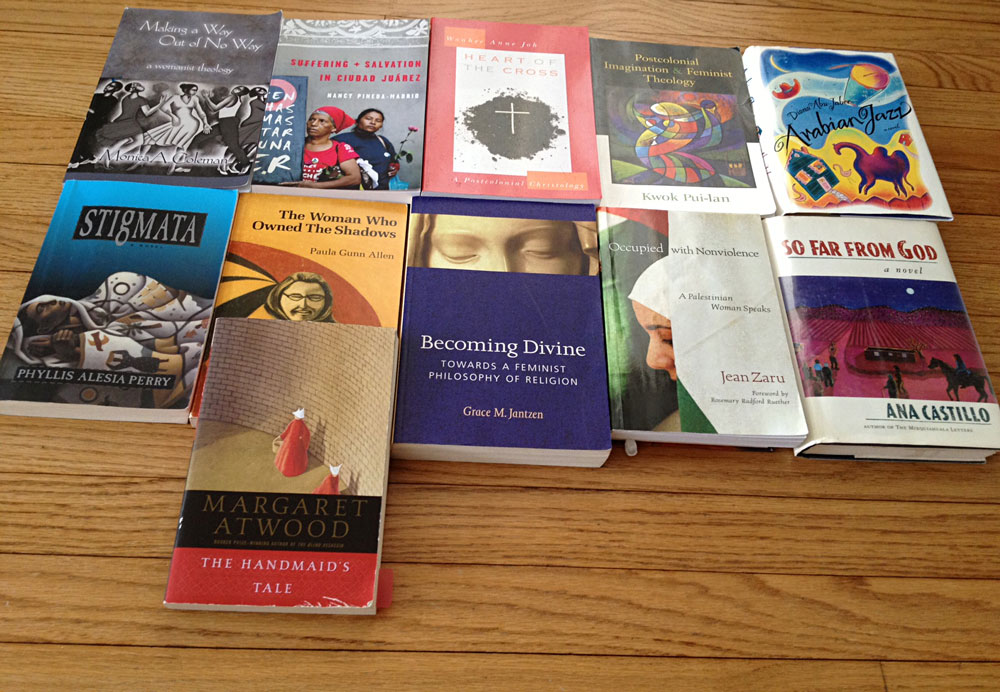This course examines the beliefs of Christian theology from feminist and womanist perspectives. Students read deeply in such feminist and womanist theologians as Delores Williams, Elizabeth Johnson, Ada-Maria Isazi-Diaz, Kwok Pui-lan, Monica Coleman, Wonhee Anne Joh, Nancy Pineda-Madrid, Andrea Smith, and more. The course is unique in that it centers theological reflection in several key literary texts, particularly in five novels. The novels read will be these: Arabian Jazz, by Diane Abu-Jabar, Meridian by Alice Walker, The Woman Who Owned the Shadows by Laura Gunn Allen, So Far from God by Ana Castillo, Obasan by Joy Kogawa and poetry selections in Janice Mirikitani’s Shedding Silence. (This course I team-teach with Professor Yolanda Pierce, also of Princeton Theological Seminary, who is Associate Professor of African American Religion and Literature and Liaison to Princeton University Center of African-American Studies.)
As of Fall 2018, this course has been discontinued as my institution welcomed the stellar work in feminist, womanist and decolonial studies done by new appointees to the Theology and Religion and Society Departments, Dr. Keri Day, and Dr. Hanna Reichel.
